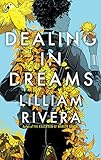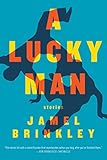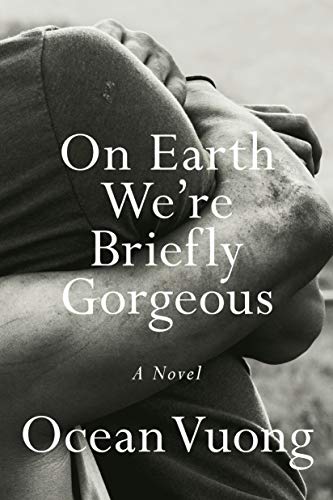Each year begins with a post-midnight call from my parents. I expect such a call this coming year, but it will be sans one parent. Perhaps when my father calls, my grieving mind will play one of those mean tricks it’s been playing since March, and for a hopeful half-second I’ll wait for Mom to come on the line with her buoyant voice full of new year’s wishes.
Last January, she wished that all my hopes and dreams surrounding my forthcoming short story collection would become real for me. She knew that my hopes and dreams—the ones that don’t involve my family members alive and prospering—are all tied up in the books I’m writing. This also means, by extension, all my hopes and dreams are tied to the books I’m reading. And what greater signifier of our eventual end is there than a TBR pile? How it mocks and taunts. How its very existence is a reminder that reading all the books one desires to read is a project no human can even possibly come close to completing.
When I think of the books I read this year, I can’t help but think of the books my mother never got a chance to read. I think of the shifting stack of books on her nightstand. I believe they are still there as if in memorial to her reading life. My mother loved the prolific romance novelist, Beverly Jenkins. Surely there were many of her novels my mother missed. I’ve never read a romance novel, know little of the genre, but after my mother passed, I took a Beverly Jenkins novel from my parents’ basement shelf, to read, but also as something tangible of her to hold since I can no longer hold her hand, but I have yet to open it.
 For Christmas last year, my father bought my mother Michelle Obama’s memoir, Becoming, but in her illness, I don’t believe she ever got a chance to read it. And there is my own book that I taunted her with in galley form. Look it exists! Hold it, but please don’t read! I didn’t want her to see the typos of the galley, to have to turn the inferior flimsy paper. The pictures are blurry in the galley and would, I knew, look better in the finished copy. I was in the midst of making small, but consequential sentence-level changes. My child had put on his clothes, but he had not yet washed his face nor combed his hair.
For Christmas last year, my father bought my mother Michelle Obama’s memoir, Becoming, but in her illness, I don’t believe she ever got a chance to read it. And there is my own book that I taunted her with in galley form. Look it exists! Hold it, but please don’t read! I didn’t want her to see the typos of the galley, to have to turn the inferior flimsy paper. The pictures are blurry in the galley and would, I knew, look better in the finished copy. I was in the midst of making small, but consequential sentence-level changes. My child had put on his clothes, but he had not yet washed his face nor combed his hair.
The final version, I told her, would be here in a few weeks. She didn’t have a few weeks. Yes, Ma, many good things did happen with my book, many of those dreams did become true, but because you are not here it all means less. I wonder if she would have enjoyed my book. She would have complained about the profanity. She would have smirked, and shaken her head at the book’s fantastical conceits and said, I don’t know where you get this wild imagination. It’s not so wild though. I want an imagination so wild it conjures her at will. That’s the sort of fantasy life afforded only to the characters in the stories we tell.







 Speaking of the stories we tell, I’ve been telling myself and others that I was reading Ocean Vuong’s excellent novel, On Earth We’re Briefly Gorgeous before and after my mother passed. In my recollection, as my mother faded I was comforted by the relationship between Little Dog, the main character, and his mother. I have strong memories of sitting on my bed the morning after my mother’s passing using the poetry of the prose to heal my grief-scarred mind. That memory can’t possibly be true. I picked up Vuong’s book at the AWP conference more than a week after my mother died. What’s true though is how beautifully at peace the novel made me feel when I had little but the tumult of sadness.
Speaking of the stories we tell, I’ve been telling myself and others that I was reading Ocean Vuong’s excellent novel, On Earth We’re Briefly Gorgeous before and after my mother passed. In my recollection, as my mother faded I was comforted by the relationship between Little Dog, the main character, and his mother. I have strong memories of sitting on my bed the morning after my mother’s passing using the poetry of the prose to heal my grief-scarred mind. That memory can’t possibly be true. I picked up Vuong’s book at the AWP conference more than a week after my mother died. What’s true though is how beautifully at peace the novel made me feel when I had little but the tumult of sadness.
I don’t keep a log of my reading and haven’t for many years; though I did in the years I tried and failed to read one hundred books. I will forget some. Others, possibly belong to the previous year. My TBR pile grows. But I’m ending the year as I began it, with Maurice Ruffin’s We Cast a Shadow. I read it out of excitement and anticipation early in the year and now, I read it as a professor eager to share a good book with his students. I bought my niece a copy of Lilliam Rivera’s Dealing in Dreams so we could read together. And we traded e-mails about the plot twists, the characters and the general joys of the narrative. Similarly, my son and I read Jason Reynolds’s Look Both Ways and found ourselves lost in laughter. Alongside my wife, I ready Kiese Laymon’s Heavy—honesty in black, carefully laid.
Because short stories make my world go around: Jamel Brinkley’s A Lucky Man (begun in 2018, I believe); Ivelisse Rodriguez’s Love War Stories; Camille Acker’s Training School for Negro Girls; Bryan Washington’s Lot; Mickey Hess’s The Novelist and the Rapper (also his A Guest in the House of Hip-Hop) and ZZ Packer’s Drinking Coffee Elsewhere. Poetry likewise makes my world revolve, but in the opposite direction: Kwame Dawes’s City of Bones; Jericho Brown’s world-shaking The Tradition; Nicole Sealey’s Ordinary Beast; Reginald Dwayne Betts’s Felon and his earlier Bastards of the Reagan Era (the cover of Felon is white and Bastards is black, and the books are like that, night and day; read them together and watch a whole world build around you). I read the autobiographies of William Wells Brown, a formerly enslaved man who went on to write several slave narratives, and I wept for the pressure white supremacy and the peculiar institution put on an individual, the way it made him write his tragedies as comedy to entertain indifferent white people. Jess Row’s White Flights redefined many of my assumptions about how race works in white fiction.
I served as a judge for the Tournament of Books and read Heidi Sopinka’s The Dictionary of Animal Languages, Lydia Kiesling’s Golden State, Michael Odaajte’s Warlight and Oyinkan Braithwaite’s (hilarious) My Sister the Serial Killer. When Toni Morrison passed in the summer, I was reading her essay collection, The Source of Self-Regard, and like nearly each time I’ve read a work by Morrison, I left elevated by the intellect of the author. This time though I also left with a great sadness—my mother was gone and the woman who is a literary mother to so many of us had likewise left the earth.
More from A Year in Reading 2019
Don’t miss: A Year in Reading 2018, 2017, 2016, 2015, 2014, 2013, 2012, 2011, 2010, 2009, 2008, 2007, 2006, 2005









